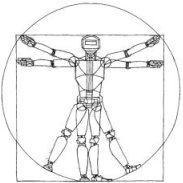Robotics: Science and Systems XVIII
Learning Interpretable, High-Performing Policies for Autonomous Driving
Rohan Paleja*, Yaru Niu*, Andrew Silva, Chace Ritchie, Sugju Choi, Matthew Gombolay* These authors contributed equally
Abstract:
Gradient-based approaches in reinforcement learning (RL) have achieved tremendous success in learning policies for autonomous vehicles. While the performance of these approaches warrants real-world adoption, these policies lack interpretability, limiting deployability in the safety-critical and legally-regulated domain of autonomous driving (AD). AD requires interpretable and verifiable control policies that maintain high performance. We propose Interpretable Continuous Control Trees (ICCTs), a tree-based model that can be optimized via modern, gradient-based, RL approaches to produce high-performing, interpretable policies. The key to our approach is a procedure for allowing direct optimization in a sparse decision-tree-like representation. We validate ICCTs against baselines across six domains, showing that ICCTs are capable of learning interpretable policy representations that parity or outperform baselines by up to 33% in AD scenarios while achieving a 300x-600x reduction in the number of policy parameters against deep learning baselines. Furthermore, we demonstrate the interpretability and utility of our ICCTs through a 14-car physical robot demonstration.
Bibtex:
@INPROCEEDINGS{Paleja-RSS-22,
AUTHOR = {Rohan Paleja AND Yaru Niu AND Andrew Silva AND Chace Ritchie AND Sugju Choi AND Matthew Gombolay},
TITLE = {{Learning Interpretable, High-Performing Policies for Autonomous Driving}},
BOOKTITLE = {Proceedings of Robotics: Science and Systems},
YEAR = {2022},
ADDRESS = {New York City, NY, USA},
MONTH = {June},
DOI = {10.15607/RSS.2022.XVIII.068}
}
